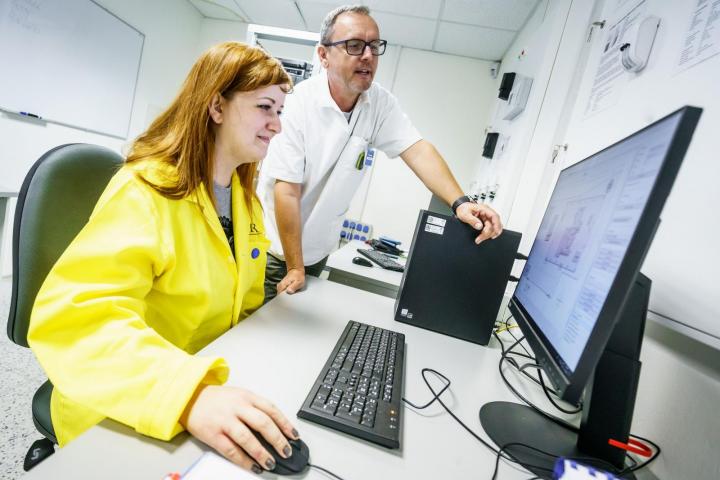
"No one at CTU was systematically devoted to teaching and research in the field of nuclear facility security, so a few years ago we agreed with colleagues from two other departments at FJFI and one from FIT to fill this gap and create a multidisciplinary doctoral programme in Safety and Security of Nuclear Facilities and Forensic Analysis of Nuclear Materials," adds Doc. Ľubomír Sklenka from KJR, who is also the guarantor of this doctoral programme.
For the needs of experimental teaching and research, four CTU departments have jointly built specialised laboratories, e.g. the Laboratory of Physical Security of Nuclear Facilities, the Laboratory of Cyber Security of Nuclear Facilities, the Laboratory of Forensic Analyses of Nuclear Materials and Dual-Use Materials or the Laboratory of Detection of Nuclear Materials and Sources of Ionising Radiation.
"Our Nuclear Cyber Security Laboratory is dedicated to research and teaching activities in the areas of ethical hacking, penetration testing and computer forensics. The laboratory's computing infrastructure allows for rapid rebuilding and restoration of previous computer setups, network elements and their interconnections. The lab allows us to create vulnerable systems (virtual and physical), flexibly set up the network structure, install firewalls, deploy malware, perform attacks or search for digital artifacts," describes Prof. Róbert Lórencz from the Department of Information Security at FIT.
"The Laboratory for Physical Security of Nuclear Installations is designed for teaching and research in the field of physical security of nuclear installations. We have various detection and delay elements of nuclear plant security including control panels, a camera system and several types of entry and exit personal identification systems, including biometrics. Specialized HYPO software allows us to perform designs of physical protection systems for a hypothetical nuclear facility and to evaluate the quality and effectiveness of these designs. In the next few days we are expecting the arrival of an American intern from the MIIS partner school in California, who will spend part of her internship in our laboratory," concludes Doc. Sklenka.
More info about the PhD course can be found here.